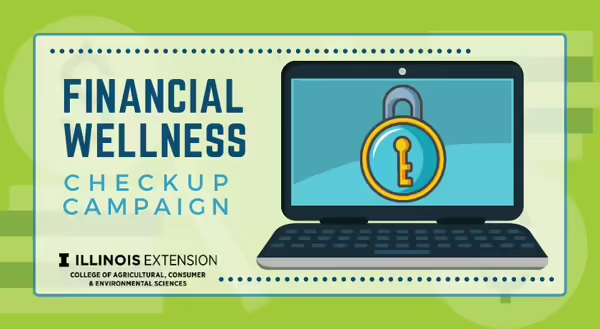
Anyone can become a victim of fraud. Losing money or property through scams and frauds can have a lasting and devastating effect on your financial well-being (CFPB). This week’s theme is financial exploitation, and throughout the week, we will be exploring multiple topics that focus on protecting personally identifiable information.
Protect your financial information online from identity thieves
Do you shop, pay bills, buy tickets, or transfer money online? Effective online security prevents cybercriminals from accessing your personal information. In addition to creating strong passwords, avoid accessing personal information on public Wi-Fi, use a secured website, and always question requests for payments. This article from America Saves provides some everyday tips on how to protect yourself against fraud. https://americasaves.org/blog/1599-3-things-you-can-do-to-protect-yourself-against-fraud
Be aware of scams during times of crisis
Incidents of fraud may arise during a crisis. To protect yourself, rely on trusted sources of information for updates during an emergency. Question all requests and products that emerge during the crisis. Learn more about five things to avoid scams from the FTC. https://www.consumer.ftc.gov/articles/keep-calm-and-avoid-coronavirus-scams-infographic
Review peer-to-peer mobile payment apps before use
Peer-to-peer mobile payments apps allow individuals to send money to friends, family, and others for covering food, rent, and other joint activities. Read the reviews before downloading or using peer mobile payment applications. To hear more about using P2P apps, listen to the Family and Financial Feuds podcast, Paper, Plastic, and P2P. https://soundcloud.com/user-345375160/paper-plastic-and-p2p and https://extension.illinois.edu/blogs/fearless-financial-future/2020-02-19-transferring-money-safely-peer-peer-mobile-apps
Prevent Grandparent scams
Anyone can become a victim of financial exploitation and fraud, regardless of age. However, losing money due to exploitation or other fraudulent financial activities may be particularly devastating for older adults who may not have a way to rebuild their financial assets. Attached are two resources to learn more. Family Financial Feuds podcast https://soundcloud.com/user-345375160/when-grandpa-get-exploited and Federal Trade Commission https://www.consumer.ftc.gov/blog/2020/04/grandparent-scams-age-coronavirus
Learn how to file a complaint
As a consumer, you have rights to fair financial products or services. If you experience problems in the marketplace, agencies such as the Consumer Financial Protection Bureau helps regulate and enforce laws that empower consumers. Learn how to file a complaint. https://www.consumerfinance.gov/complaint/
Report Incidents of Identity Theft
Identity theft occurs when someone steals your personally identifiable information (e.g., SSN, credit card number, bank account) for profit/personal gain. Learn how to file a report at https://www.identitytheft.gov/
Consider a Fraud Alert
Consider a Fraud Alert if someone misuses your information or if you are worried about identity theft because of lost or stolen personal information (e.g., Social Security card, wallet). When you set up the alert, businesses must verify your identity before issuing credit. https://www.consumer.ftc.gov/articles/0279-extended-fraud-alerts-and-credit-freezes
We hope you’re enjoying our Financial Wellness Checkup social media campaign. This week’s theme is financial exploitation and will feature the resources discussed above. To follow along as our campaign continues, choose your favorite social media mode:
- Instagram: @family.finances.food
- Facebook: Around the Table
- Twitter: @famfinancefood
ABOUT THE AUTHOR: Camaya Wallace Bechard is a Consumer Economics Educator with University of Illinois Extension, serving Livingston, McLean, and Woodford Counties. Camaya Wallace Bechard provides leadership in financial management to individuals, families, and communities and delivers educational programs that focus on building skills and knowledge about money management and financial decision-making.